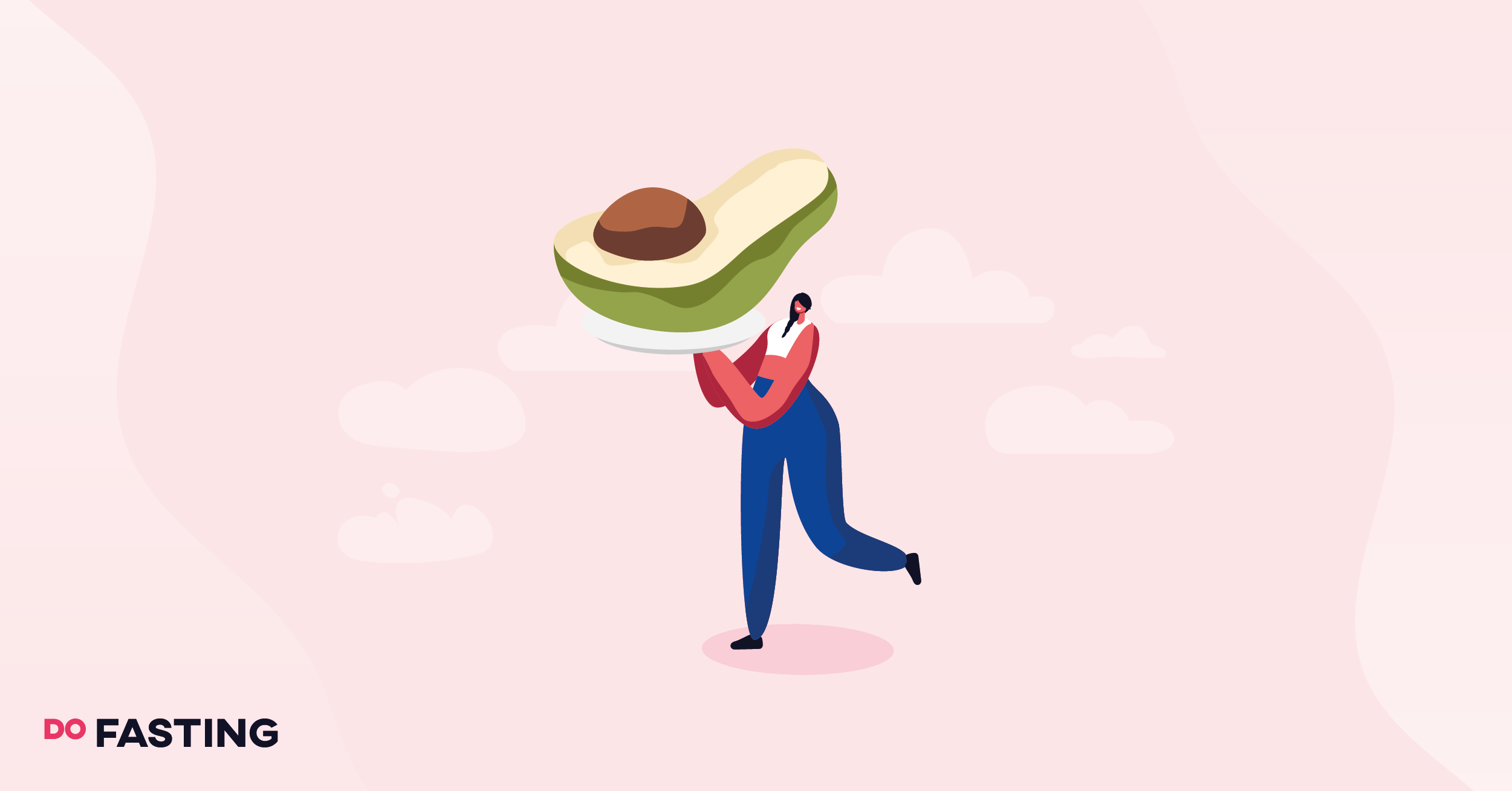Contents
What Exactly Is Tea Fasting?
Tea fasting is a less known form of intermittent fasting.
While the method of a fasting period balanced by an eating window to lose weight via calorie restrictions is popular, the idea of drinking tea for overall health benefits and to lose a few pounds is becoming more sought after.
Black, herbal, and green tea contain antioxidants and wellness-boosting oxidized tea polyphenols that promote inflammation-fighting abilities. And one of the best ways to keep those antioxidant properties intact is through cold brewing your tea.
According to research, steeping tea leaves in cold water increases their health benefits and heightens the number of antioxidants and bioactive compounds versus tea leaves treated with boiling water. Though it takes longer, cold brewing your tea is actually better for your body!
As such, intermittent fasting with tea should include three to four cups during a fasting window. Not only will this help with hydration, but also the assorted benefits that come with drinking specific teas.
Additionally, it’s important to avoid adding sugars or other flavors to your tea, as adding calories will affect your body’s state of intermittent fasting and push you out of the metabolic switch to ketosis, where fat burning occurs.
Take a
1-minute quiz
and discover how much weight you can lose with DoFasting!

What Are the Health Benefits of Tea Fasting?
When it comes to teas to drink while fasting, the benefits for your overall health are varied. Not only do herbal tea and black tea help promote weight loss and intermittent fasting support, but the powerful antioxidant properties contained in tea are essential.
It Also Boosts the Immune System
Tea contains a variety of antioxidants and, in particular, green tea has shown to be one of the best for catechin content that strengthens the immune system, due to its protection against oxidants and radicals in the body.
When this is combined with intermittent fasting, tea works to better the entire system, as intermittent fasting also reduces inflammation in the body that overworks your immune response to triggers.
Doing Tea Fasting May Improve Your Cardiovascular Health
Drinking tea can help with your heart health, giving you a reduced risk of high blood pressure, cardiovascular disease, and insulin resistance.
And when combined with intermittent fasting periods that promote ketone production and an improved metabolic rate, your heart health will be better than ever.
In particular, because black, herbal, and green tea contain flavonoids that prevent heart inflammation and regulate blood sugar levels, incorporating it into your intermittent fasting plan is a good choice.
You May Experience Better Brain Functioning With Tea Fasting
If you drink tea while intermittent fasting windows, the benefits for your mental and neurological health are undeniable.
Not only does intermittent fasting reduce oxidative stress levels and improve brain health, but clinical nutrition studies show that tea improves your mood with a calming effect and enhances brain connectivity, leading to better mental functions.
Tea Fasting Can Also Bring Down Internal Inflammation
Inflammation within the body is the culprit behind many serious illnesses, including Alzheimer’s disease, diabetes, arthritis, and a variety of age-related diseases.
However, intermittent fasting has proven to be effective in reducing inflammation and helping build up the body’s natural response to chronic inflammatory situations by suppressing the release of monocyte cells.
In particular, green tea catechins and epicatechins are great for cardiovascular health and preventing diabetes, which has roots in internal inflammation.
Green Tea Fasting Can Boost Energy Levels Without Making You Feel Jittery
Sometimes, caffeine is necessary to get through the morning, regardless of eating windows or fasting days, and going caffeine-free is just not an option.
But don’t immediately reach for the coffee pot. Instead, black tea and green tea both contain polyphenols and L-Theanine, an amino acid that promotes mental clarity and helps reduce the jittery feeling you might get from caffeine by restricting its vasoconstrictive effect.
4 Ways Tea Fasting Improves Your Weight Loss Results
When it comes to intermittent fasting, drinking tea is a great way to promote overall body weight loss and even help with weight maintenance in the future. Black, herbal, and green tea are all essential components of bettering your metabolism for lasting results.
- Tea Works as a Natural Appetite Suppressant
Tea can help you lose weight simply by not being as hungry during an intermittent fasting window!
Not only does tea— and green tea, in particular— contain plenty of caffeine and catechin levels, which are natural appetite suppressants, but if you stay hydrated and full by drinking water and tea, you can also beat the food cravings and hunger pangs.
- Tea Fasting Accelerates Fat Loss
Tea can help accelerate weight loss and help you see weight loss effects sooner, by promoting fat burning through better metabolic function and reducing your caloric intake.
Don’t forget those tea catechins either— such antioxidants boost your metabolic rate and help you burn calories and fat much quicker during intermittent fasting. Plus, when you stay energized and drink tea instead of sodas with caffeine and additives, your daily caloric intake is kept reduced and prime for ketosis.
Take a
1-minute quiz
and discover how much weight you can lose with DoFasting!

- It Also Aids the Detox Process
During intermittent fasting, the process of autophagy is an important step for your health and wellness.
As your metabolic process optimizes and ketones are released, the body is able to rejuvenate itself on a molecular level. This involves clearing out any toxins or unhealthy cells and repairing any damage that the body, its systems, and organs might have sustained.
And thanks to the catechins in tea, the regulation of autophagy is increased when you add those antioxidants to your intermittent fasting diet, even inducing that state even earlier than fasting alone would promote.
- Tea Fasting Has Proven To Be an Effective Way in Decreasing Cortisol Levels
Studies have shown that drinking tea has a favorable psychophysiological response when it comes to stress. It actually helps by lowering cortisol levels that can lead to high blood pressure, increased blood sugar, and overall more stress inside the body.
In turn, as the body has to work through fewer stressors and hormone levels are regulated, it’s much easier for a person to lose weight under these circumstances, including with intermittent fasting.
What Are the Best Teas To Have During Your Tea Fasting That Have Additional Health Benefits?
Teas to drink while fasting need to be calorie-free to keep your body in a state of ketosis and maintain a calorie deficit, but thankfully, most of the teas with the best health benefits are virtually zero-calorie and won’t interfere with intermittent fasting periods!
So, don’t be afraid of breaking your fast with any of the following types of calorie-free teas, and get ready to reap all the wellness benefits that are associated with each.
Green Tea Is the Best for Aiding Weight Loss During Fasting
For centuries, green tea has been touted as one of the best things to drink for good health, and it should come as no surprise to many. Green teas contain so many helpful components that also promote weight loss during intermittent fasting.
Not only do green tea catechins prevent you from feeling hungry as a natural appetite suppressant, but your metabolism also responds to green tea antioxidants favorably. That means by drinking green tea you can burn more fat and lose pounds during a fasting diet, thanks to thermogenesis and fat oxidation.
Ginger Tea Helps To Burn Fat Faster
Ginger is known for its positive effects on digestive health, and it also promotes weight loss due to two particular compounds, zingerone and shogaols. These seem to promote better metabolic processes that target body fat and help reduce your total BMI.
Not only does this help you process food and break down calories in a more healthy manner, but it also promotes burning fat instead of blood sugar, and improves the process of thermogenesis that reduces stored fat inside the body.
Rooibos Tea Can Prevent the Formation of Fat Cells
As herbal tea leaves, rooibos tea is sourced from a red shrub grown in Africa. And the weight-loss advantages of this tea are astounding— because rooibos teas contain polyphenols and flavonoids that target and directly combat obesity.
In addition, rooibos tea lowers leptin released within the body, a hormone that controls hunger and feeding signals in the brain.
When leptin levels are high, you are more likely to overeat without physically needing that food, so low leptin is ideal for weight loss. Plus, decreasing the leptin in your body releases more fat stores and prevents the formation of further fat cells!
Finally, rooibos enhances the antioxidants necessary for a healthy liver and produces the right hormones for fat loss and metabolizing food without turning to glycogen levels first.
Black Tea Helps To Concentrate Better Than Coffee
Coffee might be a go-to for many people to start their day, but black tea is actually a better option. This is due to the amino acid L-Theanine that is contained in tea with caffeine levels.
Studies have shown that when mixed with caffeine, this amino acid increases alertness levels, while simultaneously decreasing feelings of headaches and fatigue. These concentration levels are even more enhanced with L-Theanine’s effect than just plain coffee.
It also works to slow the caffeine absorption rate for a longer-lasting effect, while restricting the vascular stress that it sometimes has, preventing any “jitters” or shakiness you might feel with coffee.
Is Tea Fasting for Everyone?
When it comes to tea fasting, weight loss, and intermittent fasting plans, they are suitable for many individuals. However, if you belong to certain categories of people who might identify with the following conditions, then you should not attempt tea fasting without first seeking medical advice:
- A history of eating disorders.
- At the risk of cardiovascular issues.
- Below the age of 18.
- Breastfeeding, pregnant, or trying to conceive.
- Diabetics.
- Insomniacs.
- Suffering from immune deficiencies.
- Taking certain prescription medications.
Conclusion
In the world of intermittent fasting, consuming tea during fasting windows has become more popular for the various advantages to wellbeing it provides.
From black tea to green tea, your fat loss journey can be amplified and increased by adding tea into your diet, particularly if you want to tap into the appetite suppression, mental clarity, and metabolic boosts that a good brew brings.
See how DoFasting will improve your life
Find out what works for you with this 60-sec quiz approved by our experts and get your personal revolutionary fasting assistant.
Start the Quiz















